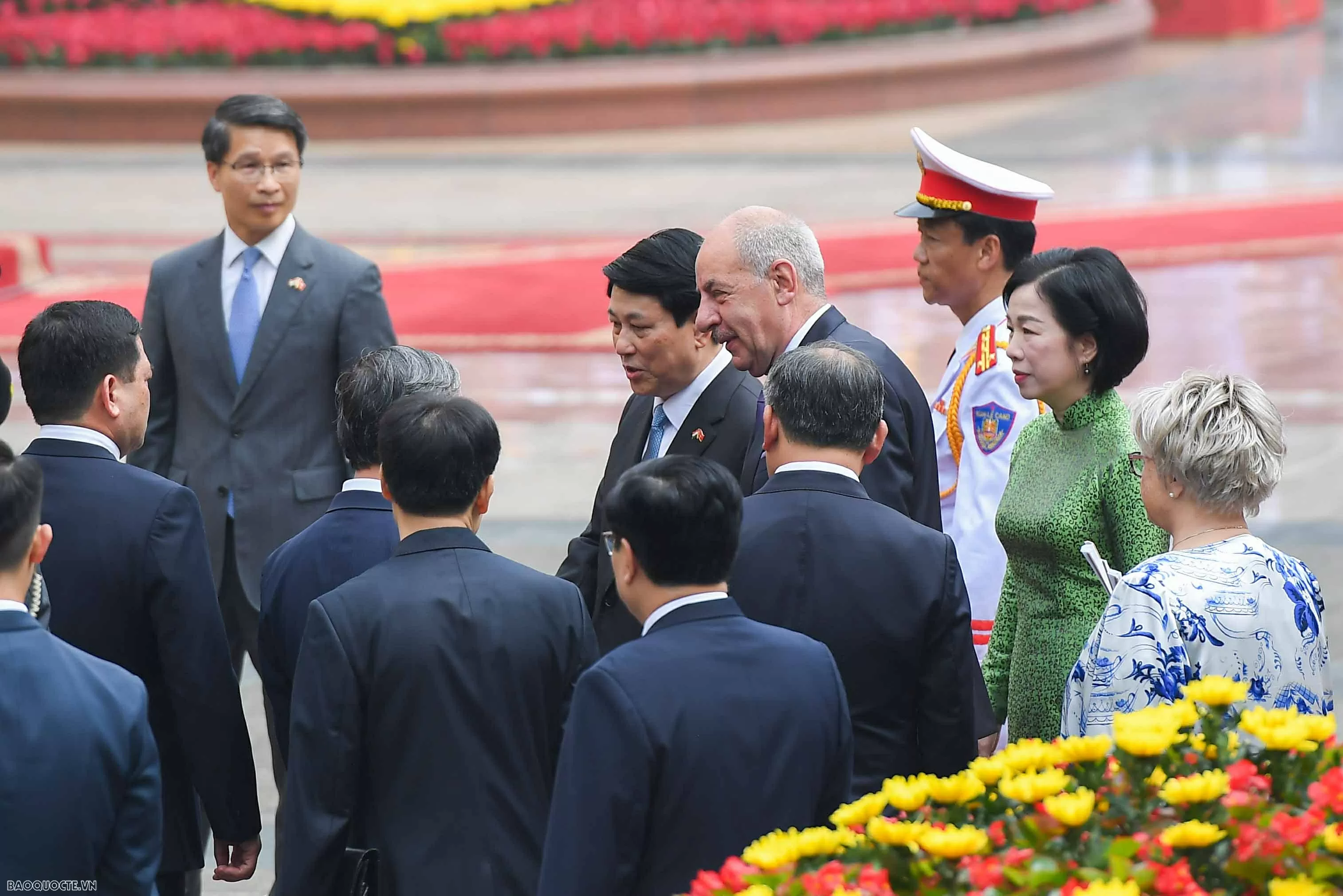 |
| Welcoming ceremony for the Hungarian President and his wife on an official visit to Vietnam, May 28, 2025. (Photo: Nguyen Hong) |
Key role in high-level foreign affairs
In the "era of national development", reception and interpretation work increasingly demonstrates its very important role in high-level foreign affairs activities of the Party and State.
First of all, reception work is an essential part of the success of high-level foreign affairs activities. Reception is not only a formality and ritual but also has a highly symbolic meaning, expressing respect, hospitality, civilization and the cultural identity of the Vietnamese people. Especially, in the context of modern diplomacy , foreign reception is no longer just a ceremonial thing but has become a strategic tool - an important form of "soft power" of the country. Careful preparation in the reception ceremony and arrangement of the working program not only shows respect for the partner but also clearly reflects the image and identity of the nation. From the solemn welcome ceremony, the delicately decorated meeting space, the dress code, to the small details of the menu, the art performance program in the State reception..., all contribute to conveying the message about the culture, values and development stature of the country.
Through the implementation of foreign reception work, Vietnam not only demonstrates its organizational capacity and respect for partners but also affirms its cultural strength, integration capacity and the image of a modern, hospitable country with its own identity. The good experiences of foreign leaders during their visits can leave a deep impression, contributing to strengthening bilateral relations and national prestige in the international arena. The level of reception, exceptions, time allocation, and carefully calculated gestures are important tools to convey diplomatic messages and help build personal relationships between our leaders and leaders of other countries.
In addition, foreign interpreting is not only a purely professional task, but also a part of diplomacy with the mission of decoding and conveying messages, correctly and subtly expressing the nuances, emotions and thoughts of both sides. This is a key factor contributing to ensuring the quality and effectiveness of high-level contacts and dialogues. In the context of increasingly deep international integration, the content of exchanges is often strategic, multi-dimensional and complex. This requires the team of interpreters to not only be solid in expertise, fluent in foreign languages, but also have in-depth knowledge of politics , diplomacy and sophistication in cultural understanding.
In particular, in the meetings between the two sides' senior leaders, although intimate words are used, the content of the exchange often contains important strategic messages. Therefore, the interpreter must demonstrate sensitivity and courage to accurately convey both language and nuances, maintaining closeness in expression while ensuring full strategic depth in accordance with the spirit and message of the Leaders. This is a challenge as well as a great honor for the foreign affairs interpretation team in the process of accompanying the country's foreign affairs work.
It can be said that reception and foreign interpretation are two key factors ensuring the success of high-level foreign affairs events. The role of these two fields becomes more prominent when Vietnam enters the era of "growing up", stronger integration, with an increasingly enhanced position in the international arena. Building a team of professional, competent, and knowledgeable foreign receptionists and interpreters will be an important factor contributing to the comprehensive and solid development of the diplomatic sector, creating and promoting the country's image effectively in the new context.
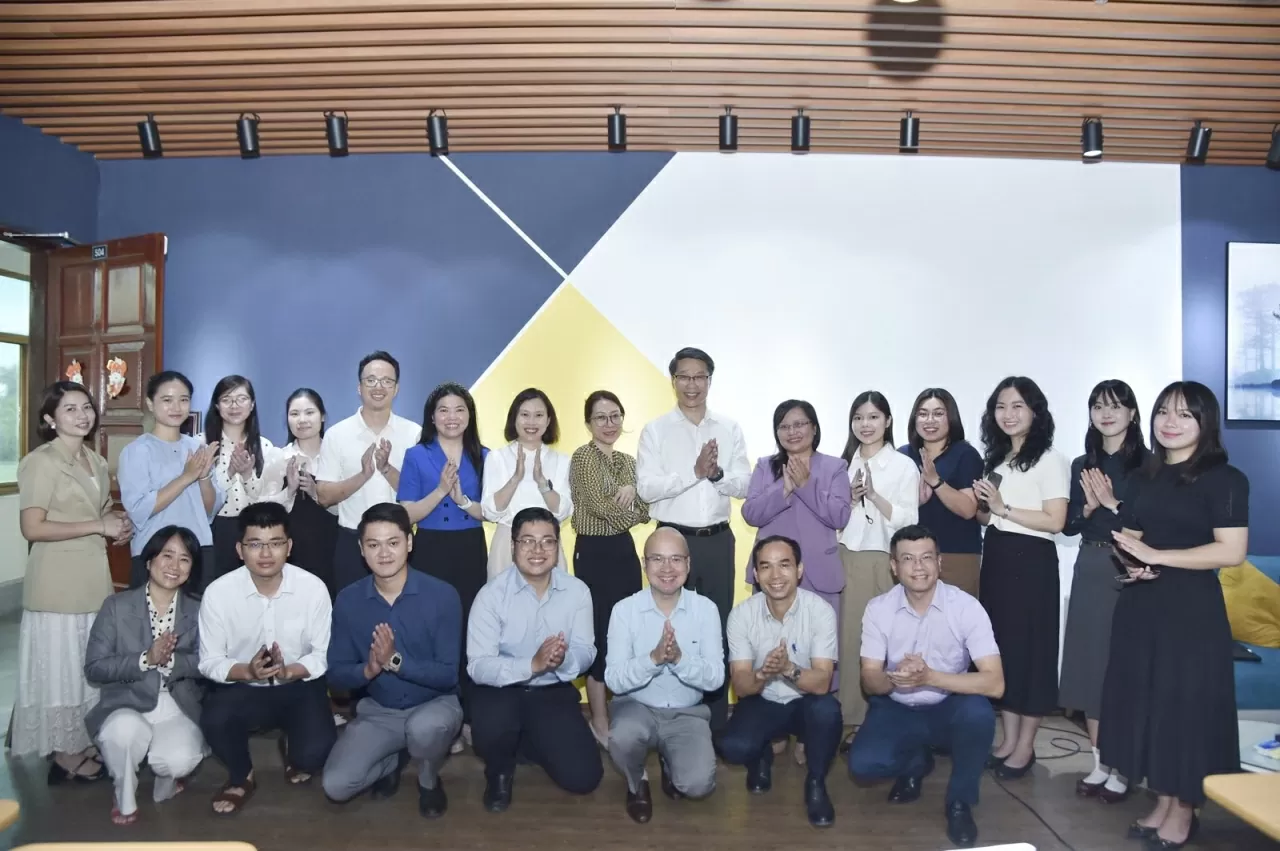 |
| The Department of State Protocol and Foreign Interpretation opened a training course on foreign interpretation skills for the Ministry of Foreign Affairs ' (expanded) network of collaborators, May 2025. (Photo: Quang Hoa) |
Comprehensive luggage in the new era
Faced with the increasingly high demands and missions of the Diplomatic sector in the new era, the team of receptionists and foreign affairs interpreters needs to prepare a comprehensive package with the following key elements:
Firstly, be politically and ideologically steadfast. Receptionists and foreign interpreters must always be imbued with the Party and State's foreign policies and guidelines, thereby maintaining a firm stance and viewpoint in all international communication situations. This is the core foundation for effectively handling complex and sensitive diplomatic situations.
Second, improve knowledge and professional skills. In the context of increasingly deep integration, the issues arising in foreign affairs activities are increasingly diverse and complex. Therefore, receptionists and interpreters need to continuously update their knowledge in many fields such as economics, politics, culture, society, international law; at the same time, they need to practice flexible situation handling skills, the ability to respond quickly and appropriately to reality.
Third, improve foreign language proficiency and international communication understanding. In addition to the ability to use foreign languages technically, people working in foreign affairs need to deeply understand the culture, thinking, customs and psychology of international partners. Mastering these factors helps to convey messages/information accurately and effectively, ensuring the quality of work.
Fourth, work professionally, dedicatedly and creatively. Professional working style, high sense of responsibility, along with constant creativity and innovation are important factors to improve work quality, create a unique mark in reception and interpretation work. Each officer needs to proactively adapt to modern diplomatic trends and international integration requirements.
Fifth, exercise. The nature of the job requires high intensity work, frequent travel, working in many places around the world with different time zones, and being on call and handling situations regardless of the time, so good physical and mental health are prerequisites to completing the task well.
Sixth, practice courage, uphold principles, and respond flexibly. In reality, receptionists and foreign interpreters are the forces directly involved in coordinating, handling, and making decisions on the spot and immediately. Flexibility in responding to sudden changes - from protocol, personnel to the requirements of leaders and partners - is a vital skill. However, such flexibility must always be within the framework of principles to ensure national interests and respect the core standards of reception and interpretation work - which is the crystallization of diplomatic culture, national prestige, and international practices.
The professional competence of receptionists and interpreters is clearly demonstrated in the ability to provide on-site advice, make quick decisions and take responsibility in unexpected and unprecedented situations, while still ensuring smoothness, standards and not affecting the national image. In many cases, this is the "last gatekeeper" before a diplomatic message is transmitted or a high-level ceremony is performed. The responsibility is not only technical but also directly related to the country's soft foreign policy strategy.
In short, to meet the requirements of the new period, each officer working in the field of foreign affairs reception and translation needs to constantly learn, practice and improve himself/herself, from health, knowledge, skills, style to courage to make a worthy contribution to the overall success of foreign affairs and the international integration process of Vietnam.
Source: https://baoquocte.vn/cong-tac-le-tan-va-phien-dich-su-menh-truyen-tai-va-giai-ma-thong-diep-doi-ngoai-325410.html





![[Photo] Dan Mountain Ginseng, a precious gift from nature to Kinh Bac land](/_next/image?url=https%3A%2F%2Fvphoto.vietnam.vn%2Fthumb%2F1200x675%2Fvietnam%2Fresource%2FIMAGE%2F2025%2F11%2F30%2F1764493588163_ndo_br_anh-longform-jpg.webp&w=3840&q=75)


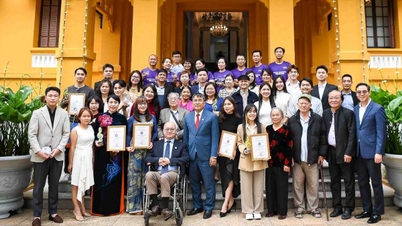

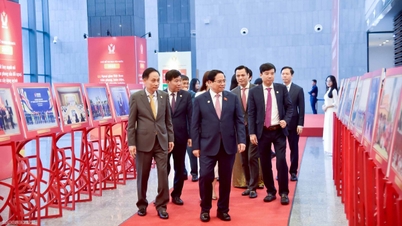


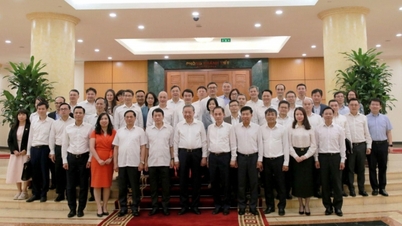
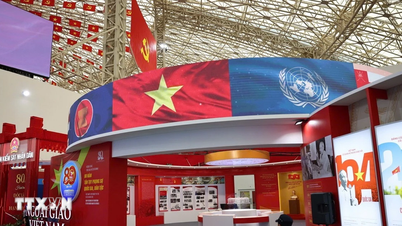

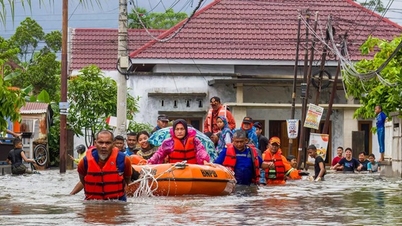

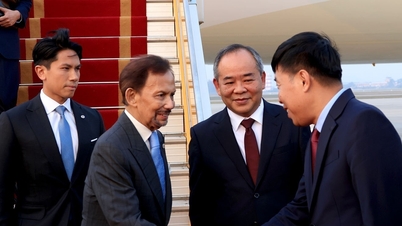

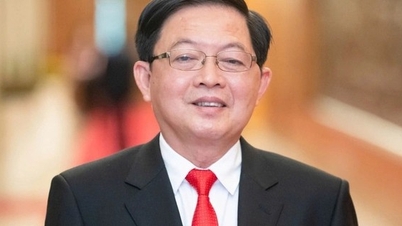








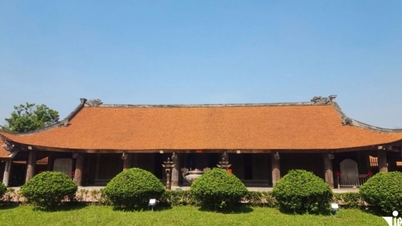
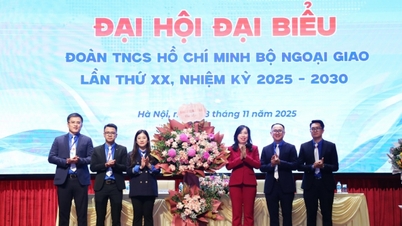

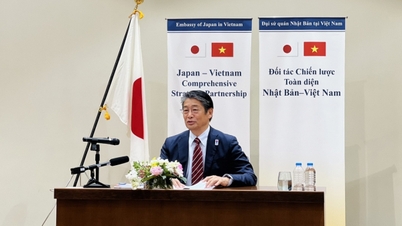
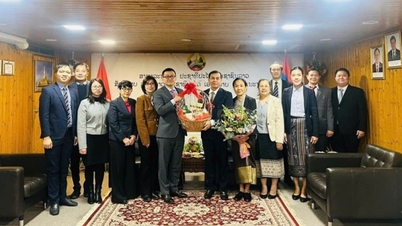
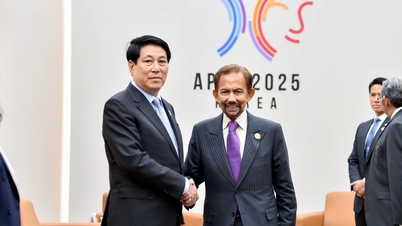






































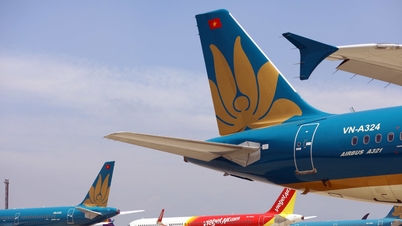







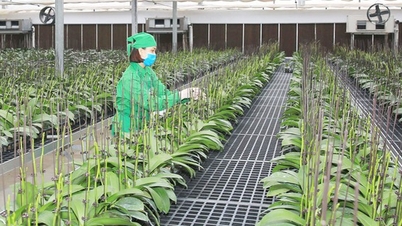




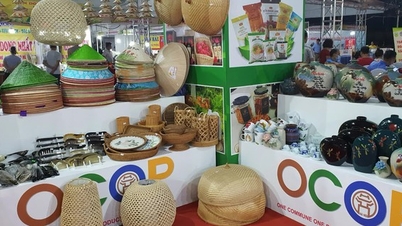






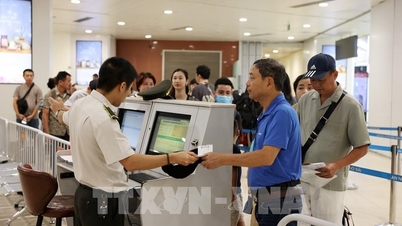














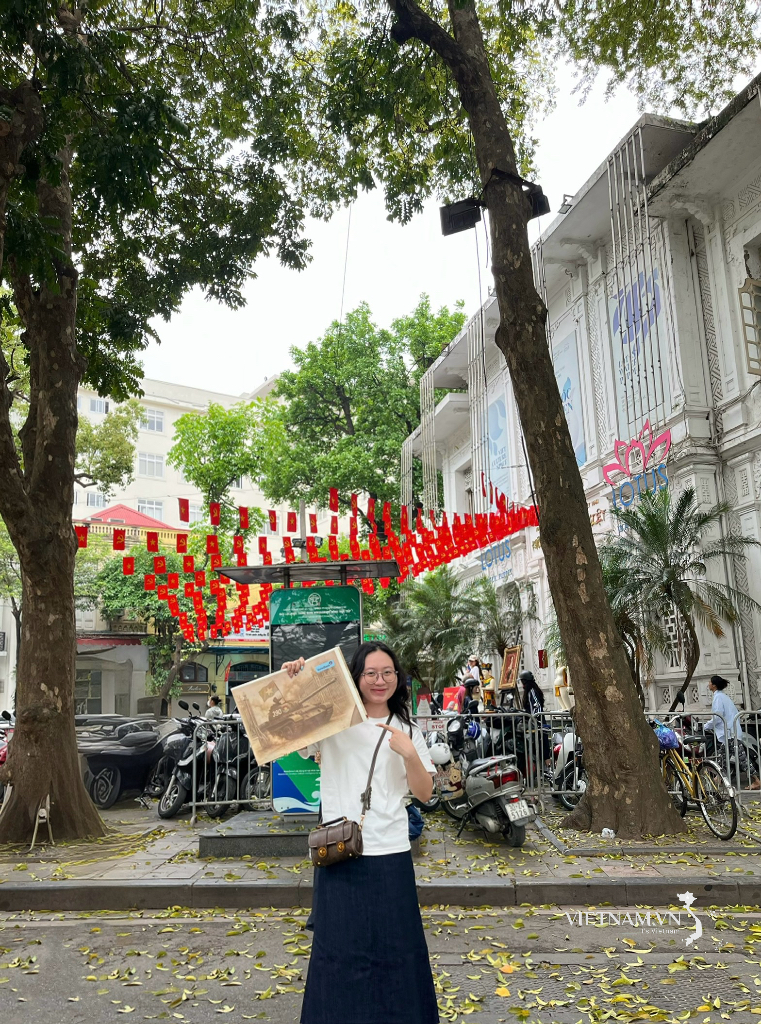
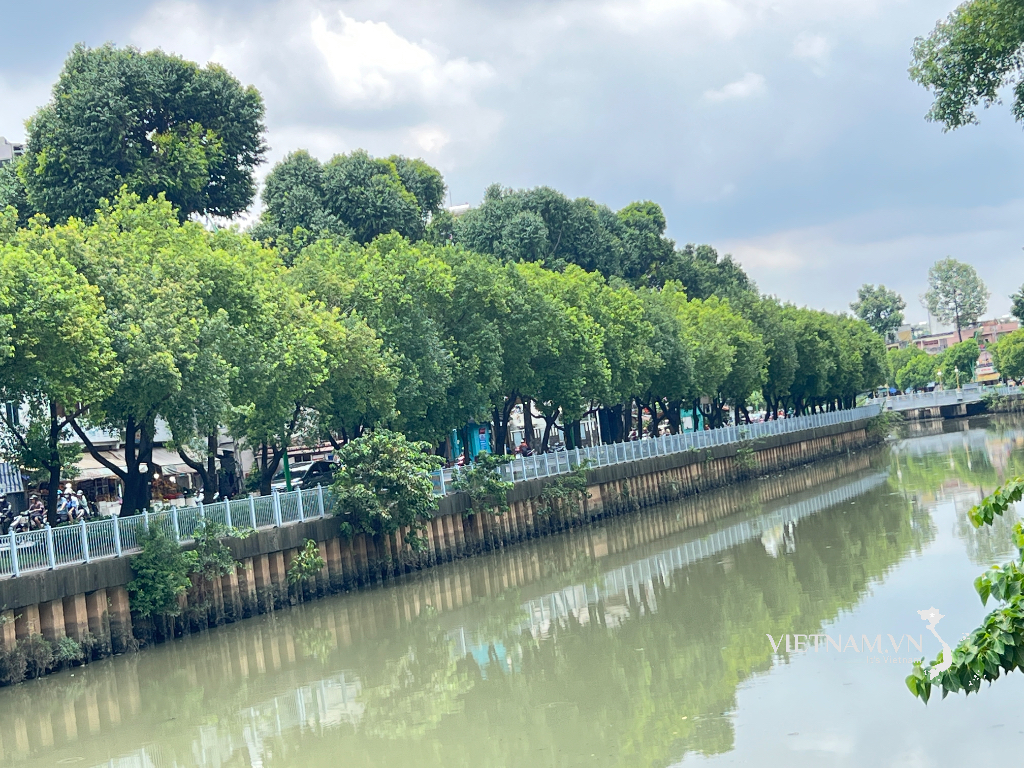

Comment (0)